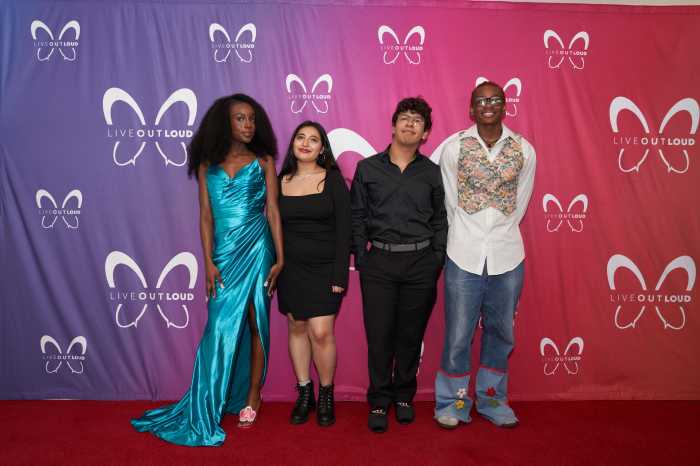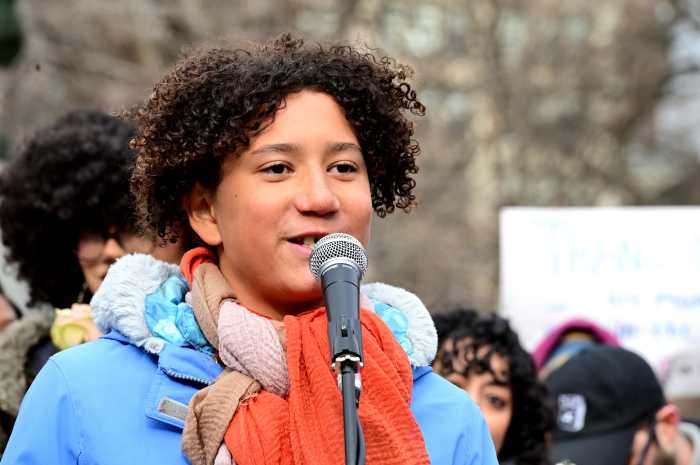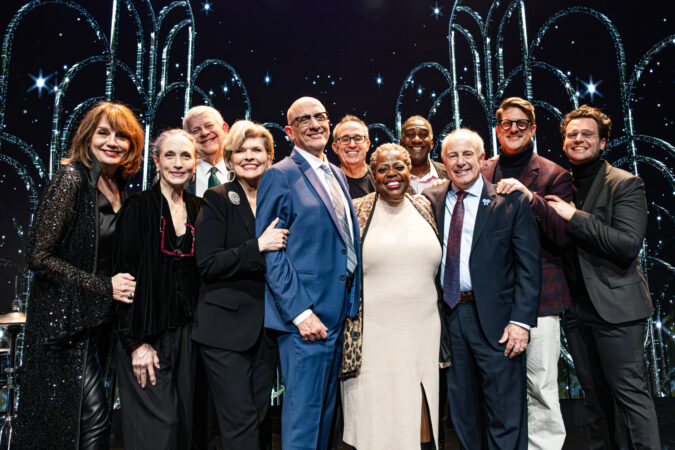Motivated in part by their own personal experiences, Maddox Guerilla and Dreya Hopkins are seizing what they see as a critical opportunity to uplift queer young people in need.
Guerilla and Hopkins are immersed in youth advocacy work with the Ali Forney Center (AFC) — the nation’s largest organization serving LGBTQ homeless youth — where they help queer young people reach their greatest potential. AFC serves thousands of clients, mostly between 16 and 24 years of age, by providing shelter, a 24-hour drop-in center, and related services.
Guerilla, a native New Yorker, leads AFC’s model replication work, which entails working with LGBTQ homeless youth providers from around the country and the world to show them how to recreate AFC’s programs and services. Those providers unite for an annual conference to learn more about how AFC carries out its work, and Guerilla also travels to see those groups in action in their respective communities. In September, he and a colleague embarked on an overseas trip to assist youth providers in four different countries.
“We work with 46 national communities and 26 international communities,” said Guerilla, who added that AFC offers advice on how to start programs, secure funding, and more.
Another initiative — the AFC Youth Advisory Board — is made up of current clients and meets to discuss ways to improve the environment for LGBTQ youth at AFC and in general. Hopkins, a 22-year-old trans woman who hails from North Carolina, is among the board’s members.

“I’m on the board to change the culture and [bring] different ideas and different things we can change in the community — to make people feel like we do matter,” Hopkins said.
Hopkins received services in Charlotte before she became a client at AFC.
“That’s when [AFC] told me, ‘Hey, we have a spot for you,'” she said. “I got on a bus and came [to New York City].”
Guerilla and Hopkins lead different lives, but both have unique perspectives because they have been on the receiving and giving end of AFC’s offerings. They are both driven to give back to the community.
“For me, I went into that space knowing I needed support,” said Guerilla, who received housing and food assistance as an AFC client several years ago.
That foundation of security, Guerilla said, was a key factor in propelling him into the work he does today.
“For a lot of young people, it’s not just about housing,” Guerilla explained. Instead, he said, multiple factors converge to create a ripple effect when it comes to the marginalization of young queer people: Discrimination, for example, can prevent people from obtaining jobs, which can ultimately jeopardize housing stability when people face financial insecurity.
Statistics on LGBTQ youth show they face disproportionate rates of hardship. More than a quarter of LGBTQ youth experience homelessness or housing instability during their lives, according to the Trevor Project’s 2021 National Survey. In New York City, queer youth make up 34% of young people between the ages of 13 and 20 living in foster care, according to a 2021 report published by the City of New York.
The challenge of helping young people in need can be daunting, but Guerilla and Hopkins underscored the importance of simply listening to people.
“I really like connecting with people and being able to support people directly — to be able to sit down, have a conversation, and know that there are people committed to making the world a better place,” Guerilla said. “I love whenever I get to work with young people who are directly impacted to feel heard, affirmed, and safe.”
Hopkins is a college student with aspirations to become a social worker and work in foster care, which she said stems from her own experience in the foster care system. She recalled previously struggling with depression, ultimately limiting her from enjoyable activities. Now she intentionally seeks out activities that will bring her joy, like drawing, swimming, and painting.
“I never used to be into those things,” she said. “But I never give up. I keep going and going.”
Hopkins also envisions opening her own clothing business someday. But more than anything, she wants to help others.
“I want to give back to people,” she said.


































